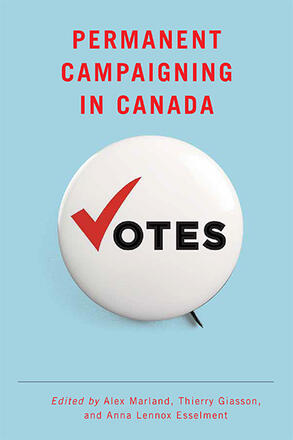
This book is a provocative look at the growth of non-stop campaigning in Canada, and it offers fresh perspectives about the political marketplace that will be of interest to students and scholars of Canadian government, politics, and elections.
Description
Election campaigning never stops. That is the new reality of politics and government in Canada, where everyone from staffers in the Prime Minister’s Office to backbench MPs practise political marketing and communication as though each day were a battle to win the news cycle. Permanent Campaigning in Canada examines the growth and democratic implications of political parties’ relentless search for votes and popularity and what constant electioneering means for governance. This is the first study of a phenomenon – including the use of public resources for partisan gain – that has become embedded in Canadian politics and government.
Reviews
The existing literature on this topic reflects a series of disparate thoughts about political behaviour, political communication, and public administration - thoughts that the editors and contributors successfully unite under a common set of theoretical assumptions and methodological commitments.
- William Wilson, University of Ottawa
The editors have collected essays that examine the rise of permanent campaigning in Canada and its implications for politics and governing … Though the authors of the essays appear to connect most of these developments to Harper, most suggest the long-term implications are yet to be seen, speculating that Justin Trudeau’s “sunny ways” might bring some changes. Summing Up: Recommended. Upper-division undergraduates through faculty.
- J. F. Kraus, Wagner College